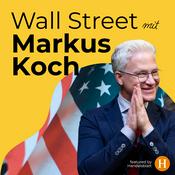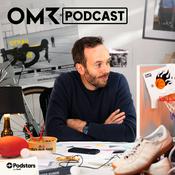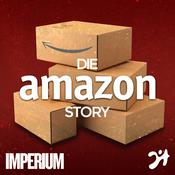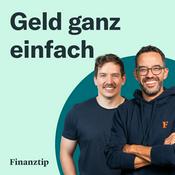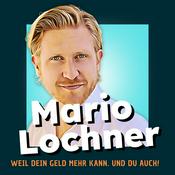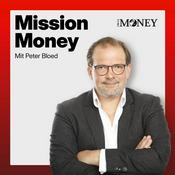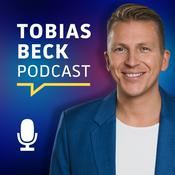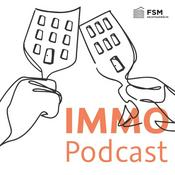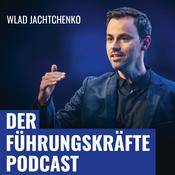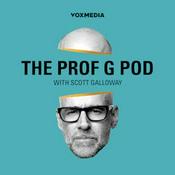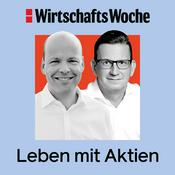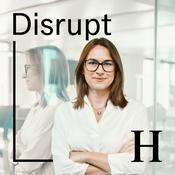92 Episoden

Authentic Communication: Live from Stanford Seed Summit in South Africa
25.7.2025 | 31 Min.
We're excited to bring you a special cross-over episode from our friends at the 'Think Fast, Talk Smart' podcast. Host Matt Abrahams joined us and recorded this live session at the Stanford Seed Transformation Network Summit in Cape Town, exploring the authentic communication strategies that every entrepreneur needs to master.Real connection means understanding your audience, staying true to yourself, and creating space for others.How do you communicate who you are, what you stand for, and leave space for others to do the same? At the Stanford Seed Summit in Cape Town, South Africa, three Stanford Graduate School of Business professors explored why real connection is built through authentic communication.For Jesper Sørensen, authentic organizational communication means talking about a business in ways customers or investors can understand, like using analogies to relate a new business model to one that people already know. For incoming GSB Dean Sarah Soule, authentic communication is about truth, not trends. Her research on "corporate confession" shows that companies build trust when they admit their shortcomings — but only if those admissions connect authentically to their core business. And for Christian Wheeler, authentic communication means suspending judgment of ourselves and others. “We have a tendency to rush to categorization, to assume that we understand things before we really do,” he says. “Get used to postponing judgment.”In this special live episode of Think Fast, Talk Smart, host Matt Abrahams and his panel of guests explore communication challenges for budding entrepreneurs. From the risks of comparing yourself to competitors to how your phone might undermine genuine connection, they reveal how authentic communication — whether organizational or personal — requires understanding your audience, staying true to your values, and creating space for others to be heard.See Privacy Policy at https://art19.com/privacy and California Privacy Notice at https://art19.com/privacy#do-not-sell-my-info.

Stanford Professors Reflect on Fostering Grit & Nurturing Growth
15.4.2025 | 26 Min.
Welcome to Grit & Growth’s final episode. After five years and 90 episodes, we’ve asked four Stanford GSB professors who teach in the Seed Transformation Program to tell us what they’ve learned — about the grit of intrepid entrepreneurs working in emerging economies and the growth they’ve experienced in their own teaching.Jesper Sorensen, Baba Shiv, Jonathan Levav, and Sarah Soule are all Stanford Graduate School of Business professors who have also spent years with Seed teaching business leaders from nearly 30 countries to grow and scale their companies. Their reflections include key takeaways about the resilience, honesty, and heart required to overcome unique challenges and the joy in seeing them triumph. As teachers, these professors also know how to learn from their students. And they’ve incorporated many of those lessons in the MBA and Executive Education programs back at Stanford.See Privacy Policy at https://art19.com/privacy and California Privacy Notice at https://art19.com/privacy#do-not-sell-my-info.

Tangguh dan Pertumbuhan: Kisah Singkat
20.3.2025 | 16 Min.
Perkenalkan Denica Riadini-Flesch, seorang mantan ekonom yang menjadi pengusaha. Ia sedih melihat perjuangan para pengrajin dan petani tradisional di pedesaan Indonesia sehingga ia mendirikan perusahaan untuk membantu mengubah hidup mereka. SukkhaCitta adalah merek mode dari petani-ke-lemari, yang mengembalikan daya kepada para perempuan yang membuat pakaian kita. Misinya: mengakhiri eksploitasi terhadap perempuan dan sekaligus meregenerasi planet ini.Menyeimbangkan tujuan dan keuntungan, sekaligus melawan permintaan masyarakat akan fast fashion adalah upaya yang cukup berat. Pakaian murah yang diproduksi oleh peretail pasar massal membebani para perajin kecil di mana-mana. Namun, dampak fast fashion terhadap planet kita bahkan lebih dramatis. Industri ini bertanggung jawab atas 10 persen emisi karbon global. Memproduksi satu kaos katun saja bisa menghabiskan 2.700 liter air. Dan semua tekstil yang dibuang menumpuk di tempat pembuangan sampah, menambah 92 juta ton sampah setiap tahun. Begitu Riadini-Flesch mulai memperhatikan cara pembuatan pakaian, ia tahu bahwa ia harus melakukan sesuatu. “Dalam ekonomi kerajinan, pada dasarnya mereka membuat sesuatu selama enam bulan, dan baru setelah itu mereka mencoba menjualnya. Namun pada saat itu, perempuan tidak memiliki daya tawar. Mereka membutuhkan uang tunai agar keluarga mereka bisa bertahan hidup. Dan itulah mengapa sektor ini juga dipenuhi dengan begitu banyak eksploitasi,” jelasnya.Riadini-Flesch mengambil pendekatan holistik, memperluas akses ke pendidikan dan pasar, dan bisnisnya berfokus pada kalender pertanian, bukan kalender mode. “Kami adalah perusahaan sosial. Apa yang kami lakukan di desa-desa didanai oleh bisnis kami. Jadi pada dasarnya, untuk setiap <pakaian> yang dibeli, pelanggan kami memulai siklus regenerasi di desa-desa kami. Dan karena hanya menggunakan bahan alami dan pewarna alami, pakaian kami hanya butuh sekitar dua hingga empat minggu agar terurai sepenuhnya kembali ke tanah,” katanya.Mempelajari cara mengembangkan bisnis sambil mempertahankan nilai-nilai yang dipegangnya membuat Denica memikirkan kembali definisi kesuksesannya. Ia mengatakan, “Pertumbuhan bukan hal buruk, selama kita tahu apa yang ‘cukup’ bagi kita. Dan begitu kita mencapainya, kita mempertahankannya. Kita mencari cara untuk menjaga semua orang yang terlibat. Kita mencari cara untuk memberi lebih banyak daripada yang kita terima. Dan ketika itu, bisnis bisa benar-benar menjadi kekuatan untuk kebaikan.”Dengarkan kisah inspiratif Riadini-Flesch dan bagaimana ia menciptakan perusahaan sosial yang memberi kesempatan nyata bagi perempuan di Indonesia, bukan hanya bantuan.See Privacy Policy at https://art19.com/privacy and California Privacy Notice at https://art19.com/privacy#do-not-sell-my-info.

Short Takes: Growing Impact, Stitch by Stitch
12.3.2025 | 14 Min.
Meet Denica Riadini-Flesch, a former economist turned entrepreneur, who was so saddened by the struggles of traditional artisans and farmers in rural Indonesia that she created a company to help change their lives. SukkhaCitta is a farm-to-closet fashion brand that puts power back in the hands of the women who make our clothes. Its mission: to end the exploitation of women and simultaneously regenerate the planet. Balancing purpose and profit while fighting society’s demand for fast fashion is a challenging endeavor. Inexpensive clothing produced by mass market retailers puts a strain on small artisans everywhere. But fast fashion’s impact on the planet is even more dramatic. The industry is responsible for as much as 10 percent of global carbon emissions. Producing a single cotton T-shirt can take 2,700 liters of water. And all the textiles that are thrown away pile up in landfills, adding 92 million tons of waste each year. Once Riadini-Flesch began really looking at how clothes are made, she knew she had to do something about it. “In the craft economy, you basically make something for up to six months, and only then they try to sell it. But at that moment, women don't have any bargaining power. She needs the cash for her family to survive. And that's how this sector is filled with so much exploitation,” she explains.Riadini-Flesch took a holistic approach, expanding access to both education and markets, and her business focuses on a farming calendar, not a fashion calendar. “We're a social enterprise. What we do in the villages is being funded by our business. So in essence, with every <piece of clothing> that our customers buy, they start this cycle of regeneration in our villages. And our clothes, because we use only natural materials and natural dyes, it takes only about two to four weeks for it to completely biodegrade back to the soil,” she says.Learning how to grow her business while maintaining her values means rethinking her definition of success. She says “Growth is not evil, as long as we know what is our ‘enough.’ And once we hit it, we maintain. We find ways to take care of everyone who's involved. We find ways to give back more than we take. And in that sense, businesses can actually become a force for good.”Hear Riadini-Flesch’s inspiring story and how she’s creating a social enterprise that gives women in Indonesia true opportunities rather than aid.See Privacy Policy at https://art19.com/privacy and California Privacy Notice at https://art19.com/privacy#do-not-sell-my-info.

Short Takes: Disrupting African Travel, One Ticket at a Time
18.2.2025 | 14 Min.
Meet Wyclife Omondi, co-founder of BuuPass, a company committed to tackling one of Africa’s biggest challenges: transportation inefficiency. The solution seemed simple enough – digital ticketing – but making it happen took persistence, adaptation, and plenty of strategic pivots. Learn about Omondi’s entrepreneurial journey as he scales to include other modes of transportation and expands across the African continent.Born and raised in Kenya, Omondi studied in Singapore and the United States, and only returned to Africa after entering a student competition with his future BuuPass co-founder. Their winning business model to use digital ticketing to bring transparency and efficiency to Africa’s transportation system came with a $1 million grant!Seamless movement across Africa is BuuPass’s mission, but the road to get there has been far from seamless. While the company is named after a Swahili slang term for bus, the business model was transferable to other modes of transportation, including trains and planes. Expanding across borders created even more opportunities, but with that came more regulatory and cultural obstacles. With a flexible mindset and willingness to pivot, Omondi keeps thinking bigger while raising venture capital, including from Silicon Valley investors, to achieve hypergrowth.Omondi admits that entrepreneurship is hard. “It's your baby, and you don't want anyone to correct your baby, and you're so tied to it. That makes pivoting a bit difficult. If something doesn't work, we reiterate and go. But also in Africa, when you go alone, you go this far, but when we go together, we can go much further. So value partnership and collaboration to make your business more successful.”Hear how Omondi is transforming transportation for operators, ticket sellers, and travelers – however and wherever they go.See Privacy Policy at https://art19.com/privacy and California Privacy Notice at https://art19.com/privacy#do-not-sell-my-info.
Weitere Wirtschaft Podcasts
Trending Wirtschaft Podcasts
Über Grit & Growth
Höre Grit & Growth, Wall Street mit Markus Koch - featured by Handelsblatt und viele andere Podcasts aus aller Welt mit der radio.at-App
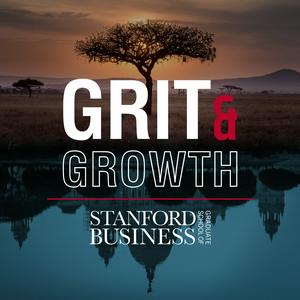
Hol dir die kostenlose radio.at App
- Sender und Podcasts favorisieren
- Streamen via Wifi oder Bluetooth
- Unterstützt Carplay & Android Auto
- viele weitere App Funktionen
Hol dir die kostenlose radio.at App
- Sender und Podcasts favorisieren
- Streamen via Wifi oder Bluetooth
- Unterstützt Carplay & Android Auto
- viele weitere App Funktionen


Grit & Growth
App laden,
loshören.
